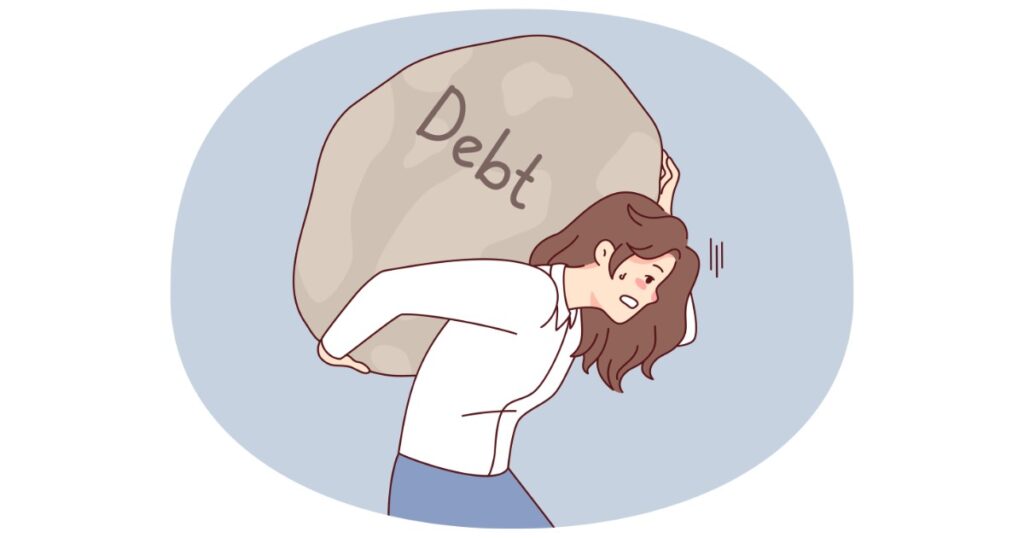
How to Avoid Debt in College is a crucial topic for students who want to start their adult lives on the right financial foot. College is a time of significant change and growth, but it can also be a period of financial strain if not managed carefully. With the rising cost of education, avoiding debt while in college requires careful planning, budgeting, and smart decision-making. In this guide, we’ll explore practical strategies to help you stay financially stable during your college years and beyond.
Understanding the Cost of College
Before diving into strategies on how to avoid debt in college, it’s important to understand the various expenses associated with attending college. Tuition and fees are just the beginning. You’ll also need to account for housing, textbooks, meal plans, transportation, and personal expenses. These costs can add up quickly, making it essential to have a clear picture of your financial responsibilities.
7 Smart Strategies for Financial Freedom
1. Start with a Budget
Creating a budget is the foundation of managing your finances effectively. To avoid debt, you need to track your income and expenses carefully. Begin by listing all your sources of income, including savings, part-time jobs, and financial aid. Next, outline your fixed expenses, such as tuition, rent, and utilities, followed by variable costs like food, entertainment, and personal items.
Having a clear budget helps you see where your money is going and where you can cut back. Stick to your budget as closely as possible to avoid unnecessary spending, and revisit it regularly to make adjustments as needed.
2. Apply for Scholarships and Grants
Scholarships and grants are two of the best ways to minimize college costs and avoid debt. Unlike loans, scholarships and grants don’t need to be repaid, making them an ideal source of funding. Research and apply for as many scholarships as possible, both at the local and national levels. Many organizations offer scholarships based on academic achievement, community service, or specific fields of study.
Grants, typically awarded based on financial need, can also significantly reduce your college expenses. Be sure to fill out the Free Application for Federal Student Aid (FAFSA) early to maximize your chances of receiving grant money.
3. Consider Community College or In-State Schools
One of the most effective strategies for how to avoid debt in college is to start at a community college or attend an in-state school. Community colleges offer a more affordable option for the first two years of your education, allowing you to complete your general education requirements at a fraction of the cost. Afterward, you can transfer to a four-year institution to complete your degree.
In-state schools also tend to be more affordable than out-of-state or private universities. By choosing a public in-state school, you can take advantage of lower tuition rates, which can significantly reduce your overall debt.
4. Work Part-Time During School
Working part-time while in college can help you cover your expenses without relying on loans. Many colleges offer on-campus jobs that are flexible with your class schedule. Alternatively, consider finding a job off-campus that allows you to earn money without compromising your studies.
Even if it’s just a few hours a week, the income from a part-time job can go a long way in helping you pay for necessities like groceries, textbooks, and transportation. This strategy not only helps you avoid debt but also builds valuable work experience.
5. Live Within Your Means
Living within your means is a key principle in how to avoid debt in college. It’s easy to get caught up in the social aspects of college life, but remember that every dollar spent is a dollar you might need to repay later. Be mindful of your spending habits and avoid the temptation to splurge on non-essential items.
Consider living with roommates to split housing costs, cooking your meals instead of dining out, and taking advantage of student discounts whenever possible. By making small sacrifices now, you can enjoy greater financial freedom in the future.
6. Borrow Wisely
If you must take out loans, borrow wisely. Only take what you need and avoid the temptation to borrow more for non-essential expenses. Federal student loans typically offer lower interest rates and more flexible repayment options than private loans, so prioritize them if borrowing is necessary.
Understand the terms of your loan and the repayment schedule before signing any agreements. The goal is to minimize the amount of debt you take on, making it easier to manage your finances after graduation.
7. Develop Financial Literacy
Developing financial literacy is essential for how to avoid debt in college and beyond. Understanding basic financial concepts like budgeting, saving, investing, and credit management will help you make informed decisions about your money. Many colleges offer financial literacy courses or workshops, and there are numerous online resources available to help you build your knowledge.
By educating yourself about personal finance, you can avoid common pitfalls and set yourself up for long-term financial success.
Conclusion
How to Avoid Debt in College is not just about making it through your college years debt-free; it’s about building a solid financial foundation for your future. By budgeting, applying for scholarships, working part-time, living within your means, borrowing wisely, and developing financial literacy, you can minimize your debt and focus on your education. Remember, the decisions you make now will impact your financial well-being for years to come.
Frequently Asked Questions
1. What are some tips for managing student loans?
Managing student loans effectively involves understanding your repayment options, making payments on time, and paying more than the minimum when possible. Consider consolidating loans to simplify payments, and always explore options like income-driven repayment plans if you’re struggling to make payments.
2. How can I find scholarships to apply for?
Start by checking with your school’s financial aid office, searching online scholarship databases, and looking for local community organizations that offer scholarships. Many scholarships are also available through professional associations related to your field of study.
3. Should I consider taking a gap year to save money?
Taking a gap year can be a great way to save money before starting college, especially if you use the time to work and build up your savings. Just be sure to have a plan for your gap year and understand how it might affect your college application process.
4. Is it worth attending an expensive school if I have to take out large loans?
Attending an expensive school can be worth it if the education and opportunities it provides align with your career goals and will lead to a high-paying job. However, it’s essential to weigh the costs and consider more affordable options to avoid excessive debt.
5. How can I build credit while in college?
Building credit in college can be done by responsibly using a student credit card, making payments on time, and keeping your credit utilization low. Additionally, paying off any small loans or making payments on time can help build your credit history.
Thank you for reading this article on how to avoid debt in college. We hope you found it helpful and invite you to explore more of our articles on financial literacy and college planning. Your journey to financial freedom starts here!


